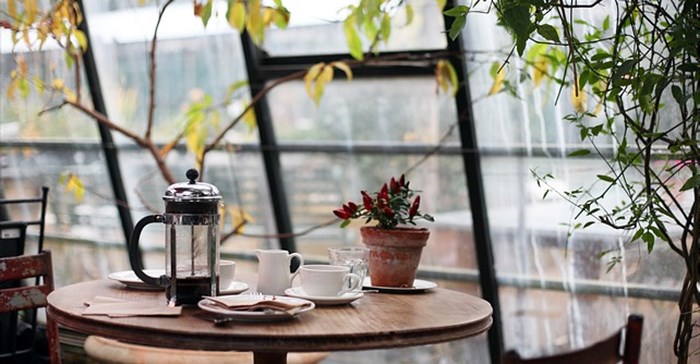
Top stories






More news


Marketing & Media
Ads are coming to AI. Does that really have to be such a bad thing?














Ironically, post-Brexit, many of these trends seem to draw inspiration from old-world England. According to Rawson Property Group, here are just a few that we may be seeing on our shores soon.
There’s nothing worse than a snoring partner when you’re desperate for sleep, and many a spouse will admit to fleeing to a spare room when the rumbles prove too much to handle. Historically, however, this was far less of a problem – at least if you were a member of the English upper class. Traditionally, spouses at the head of elite and noble families always kept separate bedchambers, a practice that has recently inspired the introduction of a 'snoring room' to many luxury architects’ client briefs.
“A snoring room isn’t quite as extreme as a completely separate bedroom,” says Tony Clarke, managing director of the Rawson Property Group. “It’s more of an antechamber off the main bedroom, furnished with a separate bed, where one can slip away for a bit of peace and quiet when necessary.” According to Clarke, snoring rooms are typically modest in size, and feature plenty of soft furnishings to dampen sound and provide a good night’s rest.
With whole foods and organic produce becoming de rigueur in high society, a mere side-by-side refrigerator is no longer adequate storage for all that healthy goodness. Rather, the wealthy English elite are adding traditional larders to their kitchens, using the naturally cool English climate and shade-facing orientation to keep the rooms chilled and their contents fresher for longer.
“A naturally chilled larder is more difficult to achieve here in South Africa, with our considerably warmer summers,” says Clarke, “but we are definitely seeing more emphasis put on generous food storage areas in kitchens. There are already some luxury homes with air-conditioned cold-rooms, and I would not be surprised to see this trend becoming more popular.”
Conservatories are a quintessentially British architectural element, designed to make the most of every ray of English sun. Modern Brits, however, are taking a more stylish approach to the typical conservatory design, using intricate metal frames to create light and airy orangeries for that indoor-outdoor feel. Here in SA, sun-drenched conservatories are an invitation for heatstroke, but according to Clarke, that doesn’t mean we’re not embracing the glass house in our own, African way.
“Blurring the divide between indoor and outdoor spaces is a very big movement in modern luxury architecture,” he says, “and having rooms made entirely of glass is a popular way to achieve this. To keep things cool, however, our architects also tend to include elements like cantilevered overhangs, cleverly designed sun shades, extensive water features and thermal controlled glass.”
Mudrooms have been doing the rounds for a while now, but the Brits have taken them to a whole new level thanks to a very Downton Abbey-esque desire to separate public and private space. “It’s become quite trendy amongst wealthy Britons to keep your front door for formal guest-use only, and welcome family and close friends in through a side entrance complete with a cosy, cluttered mudroom,” says Clarke.
Here in SA, where we typically enter our homes through a garage entrance anyway, the mudroom concept is already taking off in a big way. “Luxurious but easy-to-clean finishes are essential, as are elegant storage solutions and a good flow,” says Clarke.
While Brexit may see Britain’s popularity waning on the global front, Rawson Properties is not convinced their influence on our property trends is going to fade any time soon.